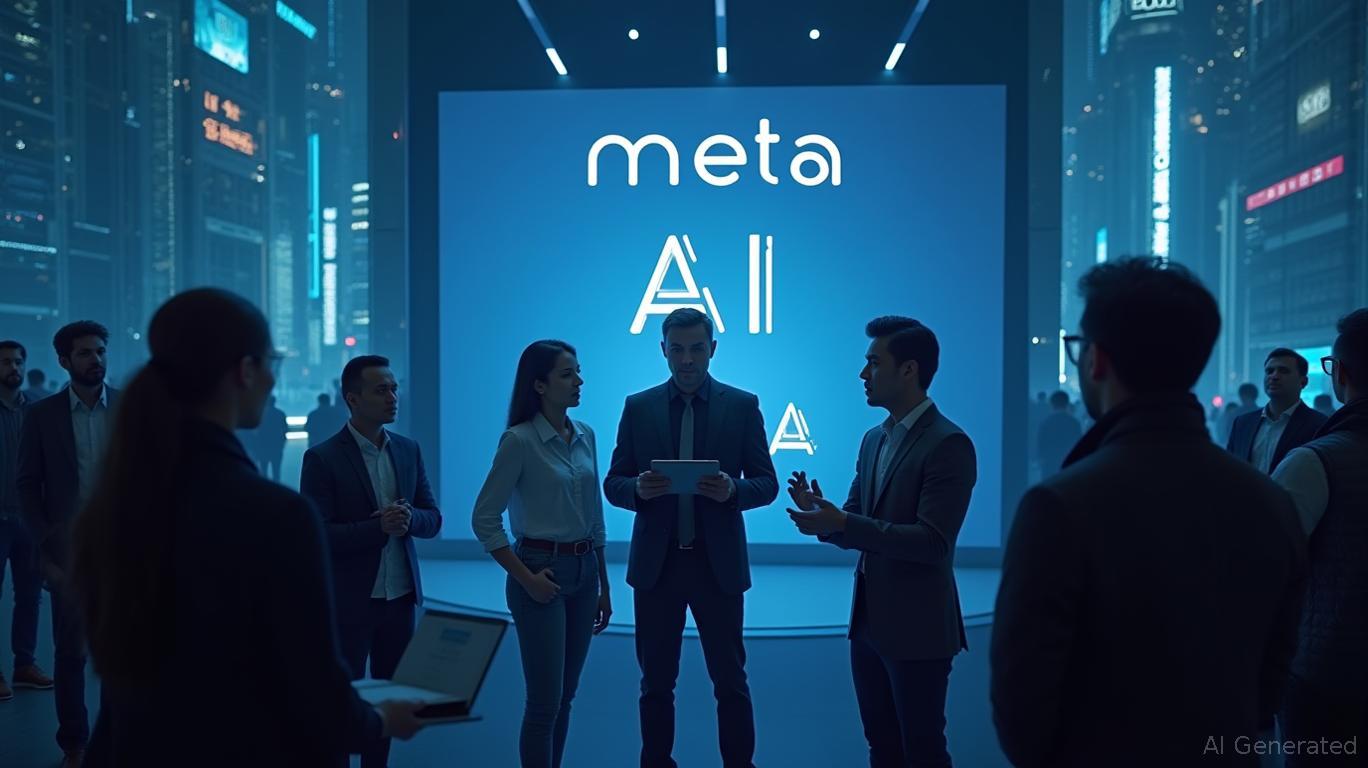Meta's pursuit of artificial intelligence ignites a debate over the balance between technological progress and the principles of democracy
- Meta's AI-driven social media era sparks debates on authenticity, free speech, and corporate accountability amid synthetic content proliferation. - Vibes app's 20B AI-generated images test blurred human-machine content boundaries, while legal cases highlight free speech vs. workplace accountability tensions. - Corporate greenwashing controversies (Coca-Cola) and political scandals (JD Vance) demonstrate AI's dual role in amplifying both innovation and ethical risks. - Legal challenges emerge from AI-gene
Meta’s proclamation of a new, AI-centric phase in social media has fueled ongoing debates about the authenticity of online content, freedom of expression, and the responsibilities of tech giants. Recent headline-grabbing incidents highlight the mounting friction between rapid technological progress and established societal values. During Meta’s Q3 2025 earnings call, Mark Zuckerberg outlined a future where user feeds are dominated by AI-created material, prioritized by sophisticated recommendation algorithms. The company’s Vibes app—where users have already produced 20 billion artificial images—acts as a proving ground for this transformation, further blurring the distinction between content made by humans and that generated by machines, as

The shift toward artificial intelligence has sparked a range of responses. While
Corporations are also contending with the ethical dilemmas posed by AI and social platforms. Coca-Cola has come under fire for alleged greenwashing after a deleted post accused the company of sabotaging international plastic waste negotiations. Colombian legislator Juan Carlos Losada criticized the company’s “circular model,” which emphasizes recycling over reducing plastic output, calling it a profit-driven tactic that worsens environmental issues, as reported by
Political leaders are not immune to the complexities of social media. JD Vance’s comments at a Turning Point USA event—suggesting his Hindu spouse should convert to Christianity—sparked controversy, further fueled by online speculation linking him to Erika Kirk, the widow of Charlie Kirk. This situation demonstrates how digital platforms can escalate personal matters into political flashpoints, compelling public figures to navigate both cultural and ideological pressures, as detailed in
Meta’s AI-driven direction also aligns with broader business strategies. Coinbase’s reported $2 billion offer for stablecoin infrastructure firm BVNK signals a wider competition to lead blockchain-based payments, a field now bolstered by U.S. laws like the GENIUS Act, as noted in
However, the fast-paced development of AI-generated content is raising new legal concerns. Fox News was mocked after mistakenly airing AI-created videos that falsely portrayed SNAP recipients, revealing weaknesses in media fact-checking systems, as mentioned in
As artificial intelligence continues to transform social media, all stakeholders—from businesses to policymakers—must confront its far-reaching effects. While Meta imagines a world where algorithms deliver content with a nuanced grasp of user interests, detractors warn that such technology could spread falsehoods and deepen social rifts. The next few years will reveal whether technological progress can be balanced with demands for responsibility, openness, and the preservation of democratic values.
---
Disclaimer: The content of this article solely reflects the author's opinion and does not represent the platform in any capacity. This article is not intended to serve as a reference for making investment decisions.
You may also like
MMT circulation will begin at 18:00 on November 4th.
A whale repurchased 800 BTC after a year's hiatus, worth $84.87 million.